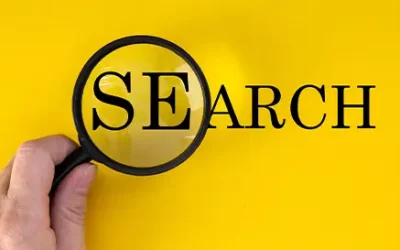As SEO specialists seek new strategies for improving their SEO, a recent comment from Google’s John Mueller is notable. Google provided an answer to this user query,” We have a website with satisfying ranks and now our product added new features. We need to modify the page meta title & description, does that affect the current rankings?”
John Mueller replied,
“Yes, or better, maybe. Changing things like titles or headings on pages can result in changes in Search. Similarly, changing the meta description on a page can result in changes with how the snippet of a page is shown in Search. This is expected, and usually something that SEOs or site-owners focus on in an attempt to improve things in search.”
This explanation has sparked confusion about the long-held SEO belief that title tags are an important ranking factor that directly influences the search results of a website. To improve your website traffic and generate more organic leads, you can consider hiring digital marketing services for your business.
Title Tags
Title tags are considered one of the most important factors for on-page SEO and define the title of a webpage. It is an HTML element that allows you to communicate the purpose of content on a webpage to Google and its users. Title tags appear in the SERP, social media posts, and browser title bar. It is the first thing users notice about your website, so ensure that the title tag accurately reflects the content of your webpage. The title tags should be brief and compelling, not longer than 60 characters. The official W3C documentation gives a definition about the role of title tags as:
“The title element represents the document’s title or name. Authors should use titles that identify their documents even when they are used out of context, for example in a user’s history or bookmarks, or in search results. The document’s title is often different from its first heading, since the first heading does not have to stand alone when taken out of context.”
The Evolution of Title Tags
As Google continues to update their algorithm to prioritize user experience over traditional SEO tactics, the role of title tags has also evolved over the past few years. However, since 2001, Google started taking liberties with the title tags by replacing the titles in the SERP with other relevant texts from the webpage. In fact, Search Engine Journal reported that Google has changed more than 61% of the title tags..
Google’s help file on the influence of title links in search results states that:
“Google’s generation of title links on the Google Search results page is completely automated and takes into account both the content of a page and references to it that appear on the web. The goal of the title link is to best represent and describe each result.”
Google Search uses the following sources to automatically determine title links:
- Content in title elements
- Main visual title shown on the page
- Heading elements, such as H1 elements
- Content in og:title meta tags
- Other content that’s large and prominent through the use of style treatments
- Other text contained in the page
- Anchor text on the page
- Text within links that point to the page
- Website structured data
“While we can’t manually change title links for individual sites, we’re always working to make them as relevant as possible. You can help improve the quality of the title link that’s displayed for your page by following the best practices.”
Meta Description
A meta description is an HTML element containing a snippet that summarizes the content of a webpage. It is an attribute within the meta tags that often appear under your title in the search engine results. Unlike the title tags, meta descriptions aren’t an SEO ranking factor. However, as the meta description is the first encounter that users receive to get an idea about the content on a webpage, it affects the click-through rate and website traffic. The official W3C documentation says:
“The value must be a free-form string that describes the page. The value must be appropriate for use in a directory of pages, e.g. in a search engine. There must not be more than one meta element with its name attribute set to the value description per document.”
Google’s SEO starter guide further explains:
“Below the title link, a search result typically has a description of the target page to help users decide whether they should click the search result. This is called a snippet. The snippet is sourced from the actual content of the page the search result is linking to, thus you have complete control over the words that can be used to generate the snippet. Occasionally the snippet may be sourced from the contents of the meta description tag, which is typically a succinct, one- or two-sentence summary of the page. A good meta description is short, unique to one particular page, and includes the most relevant points of the page.”
Google’s Best practices for creating quality meta descriptions advises:
“Google will sometimes use the meta description tag from a page to generate a snippet in search results, if we think it gives users a more accurate description than would be possible purely from the on-page content. A meta description tag generally informs and interests users with a short, relevant summary of what a particular page is about. They are like a pitch that convince the user that the page is exactly what they’re looking for. There’s no limit on how long a meta description can be, but the snippet is truncated in Google Search results as needed, typically to fit the device width.”
The “Maybe” Factor: Ranking Impact of Title Tags
Google’s John Mueller’s statement that title tags could “maybe” impact the ranking of a webpage clarified the impact of title tags on SEO. As Google continues to enhance the user experience, the traditional SEO tactics may no longer have the same impact on the SERP. As always, following the best SEO strategies is imperative for higher organic search engine ranking. However, it should be done with the goal of providing content that aligns with the user intent. Employing SEO tactics with just the goal of ranking well in the SERP without improving user value doesn’t cut it anymore. So, any change in title tags has to increase the user value, impacting the search engine results positively. If you wish to rank highly on the SERP and expand your customer base, you may utilize the outsourced services of a search engine optimization company.




